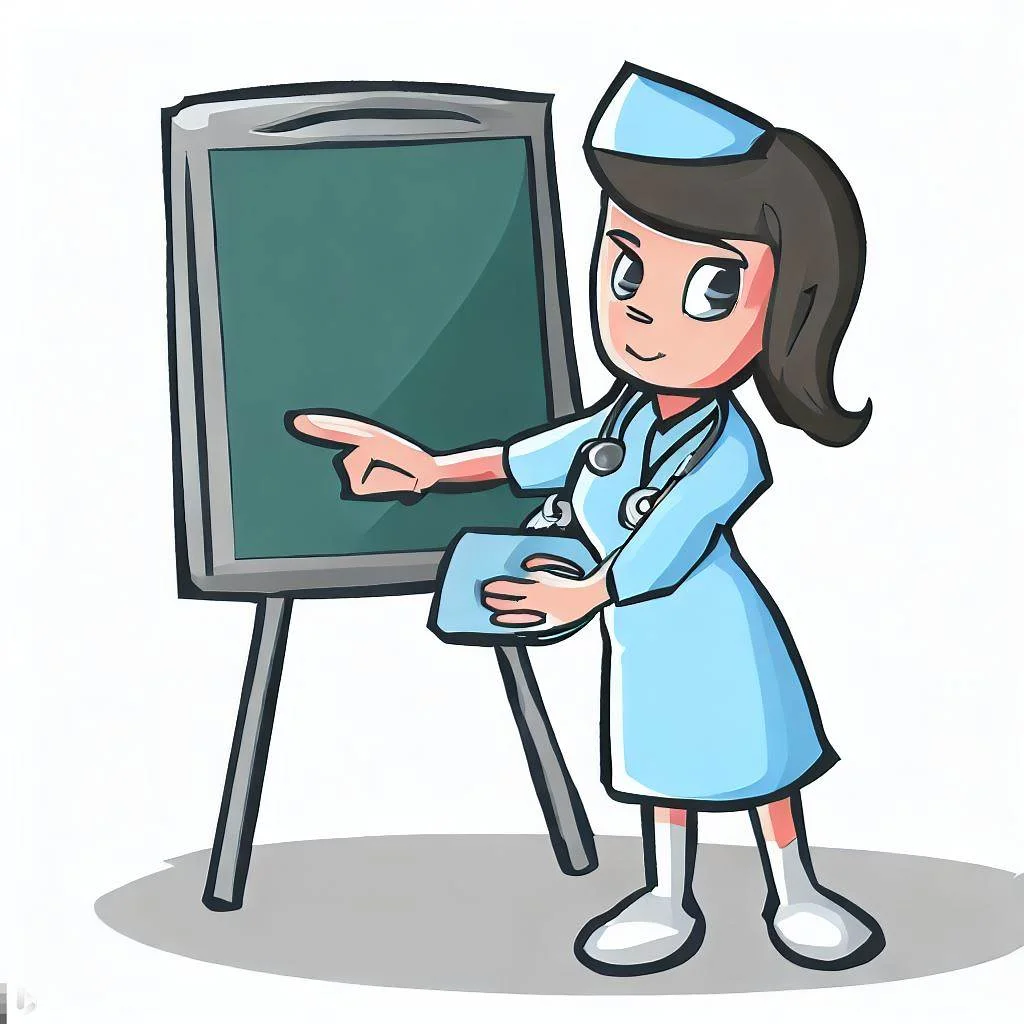Effective Teaching Strategies in Nurse Education

Nurse education is a critical component of preparing future healthcare professionals to provide high-quality patient care. As nursing students, understanding the various teaching strategies employed in nurse education is essential not only for your academic success but also for your future career as a nurse. In this blog, we will delve into the realm of nurse education methods and explore effective teaching strategies that can help you write your nursing education assignment effectively.
The Importance of Nurse Education Methods
Nurse education methods play a pivotal role in shaping the nursing workforce. As nursing evolves to meet the ever-changing demands of healthcare, it becomes crucial for educators to employ effective teaching strategies that foster critical thinking, clinical skills, and compassionate care. Nursing students must not only grasp the theoretical concepts but also be prepared for the practical aspects of their profession.
Let's delve into some effective teaching strategies that will help you understand and excel in nurse education.

1. Active Learning
Active learning is a dynamic approach that encourages students to become active participants in their learning process. Rather than simply receiving information passively, students are actively engaged with the subject matter. In the context of nursing education, active learning is a game-changer. It not only promotes a deeper understanding of the material but also cultivates critical thinking skills and clinical judgment, which are essential for nursing practice.
- Discussions: Instructors can foster active learning by facilitating classroom discussions where students can express their thoughts, ask questions, and debate different perspectives. These discussions encourage students to analyze complex healthcare scenarios, consider ethical dilemmas, and engage in constructive dialogue.
- Case Studies: Case studies present real-life patient scenarios that require students to apply their knowledge to solve clinical problems. Analyzing and discussing these cases helps students develop clinical reasoning and decision-making skills.
- Role-Playing: Role-playing allows students to step into the shoes of healthcare providers and simulate patient interactions. This strategy enhances their communication skills and empathy, crucial qualities for nursing professionals.
- Hands-On Clinical Experiences: Active learning extends to the clinical setting. During clinical rotations, students actively participate in patient care under the guidance of experienced nurses. This hands-on experience solidifies theoretical knowledge and builds confidence in practical skills.
Emphasizing active learning when doing your nursing assignments for nursing students can underscore the importance of being an engaged and proactive learner. Encourage them to seek opportunities for active participation in their education, both inside and outside the classroom.
2. Simulation-Based Learning
Simulation-based learning is a revolutionary teaching strategy that replicates clinical scenarios in a controlled environment. This approach allows nursing students to practice and refine their clinical skills before they encounter real patients. Here's a closer look at the benefits:
- Safe Environment: Simulation provides a safe space for students to make mistakes, learn from them, and develop competence without risking patient harm.
- Realistic Scenarios: High-fidelity mannequins and simulated clinical situations closely mimic real healthcare settings. Students can practice procedures, assessments, and interventions as if they were in an actual hospital or clinic.
- Feedback and Reflection: After simulations, students receive feedback from instructors and peers. This debriefing process encourages self-reflection, helping students identify areas for improvement.
- Bridge Theory and Practice: Simulation bridges the gap between classroom theory and clinical practice, ensuring that students are well-prepared to apply their knowledge in real-world healthcare settings.
When working on assignments related to nurse education methods, students can explore how simulation-based learning enhances their clinical competence, boosts confidence, and contributes to their readiness for the challenges of nursing practice.
3. Flipped Classroom Approach
The flipped classroom approach is a departure from traditional lecture-based teaching. In this model, students independently study the course material before attending class, and classroom time is dedicated to active learning activities. Here's why it's valuable in nursing education:
- Self-Directed Learning: Nursing students must develop the ability to manage their learning and seek out information independently. The flipped classroom promotes self-directed learning, as students take responsibility for their initial understanding of the material.
- Active Engagement: Classroom time is used for discussions, problem-solving, and hands-on activities that engage students in applying what they've learned. This fosters a deeper understanding of complex nursing concepts.
- Problem-Solving Skills: Nursing practice often involves critical thinking and quick decision-making. The flipped classroom approach sharpens these skills by encouraging students to tackle real-world scenarios during class.
Encourage nursing students to explore how the flipped classroom approach can enhance their ability to take charge of their learning and develop the problem-solving skills necessary for nursing practice.
4. Interprofessional Education (IPE)
In healthcare, effective collaboration among diverse healthcare professionals is essential for patient safety and quality care. Interprofessional education (IPE) brings together students from various healthcare disciplines to learn together and understand each other's roles and responsibilities.
- Improved Communication: IPE fosters communication skills that are crucial for working in a healthcare team. Students learn how to effectively share information, express concerns, and coordinate patient care.
- Teamwork: In nursing practice, collaboration is key. IPE helps students appreciate the value of teamwork and how it contributes to better patient outcomes.
- Holistic Care: Understanding the roles of other healthcare professionals allows nursing students to provide more holistic care to patients, considering not just their medical needs but also their social, psychological, and emotional well-being.
Encourage nursing students to explore how IPE can enhance their ability to work collaboratively in healthcare teams and promote patient-centred care in their assignments.
5. Technology Integration
In today's digital age, technology has become an integral part of nursing education, enhancing the learning experience in various ways. Here's how technology integration can be highlighted in your assignments:
- Online Simulations: Online simulations provide nursing students with realistic scenarios and patient interactions in a virtual environment. These simulations allow students to practice clinical skills, decision-making, and critical thinking without the need for physical equipment or live patients. Students can explore different patient cases, respond to emergencies, and receive immediate feedback, making it an invaluable tool for skill development and confidence-building.
- Virtual Reality (VR) Experiences: Virtual reality technology immerses nursing students in 3D environments that replicate clinical settings. This immersive experience enables students to explore different healthcare scenarios, practice procedures, and develop their clinical judgment in a safe and controlled environment. VR can be particularly beneficial for simulating high-stress or rare clinical situations.
- Mobile Apps: Nursing students can access a wide range of mobile apps designed to support their education. These apps offer resources such as drug references, anatomy and physiology guides, medical calculators, and clinical decision support tools. Mobile apps provide convenient, on-the-go access to essential information and can assist students in their studies and clinical rotations.
- E-Learning Platforms: Many nursing programs utilize e-learning platforms that offer online courses, interactive modules, and multimedia content. These platforms provide flexibility in learning, allowing students to access course materials, lectures, and assignments at their convenience. Moreover, they often include discussion forums and collaborative features for interaction with instructors and peers.
Highlighting the importance of technology integration in your assignments can emphasize how these tools enhance the learning experience, making it more engaging, accessible, and relevant to contemporary healthcare practices. If you choose to hire someone to complete your nursing assignment, encourage them to explore the available technological resources and consider how they can leverage them to supplement traditional teaching methods and improve the overall educational journey.
6. Assessment Strategies
Assessment is a fundamental aspect of nurse education that serves several crucial purposes:
- Formative Assessment: These assessments occur during the learning process and are designed to provide ongoing feedback to students. Formative assessments, such as quizzes, class discussions, and group activities, help students identify areas where they need improvement and guide their study efforts.
- Summative Assessment: Summative assessments evaluate the overall achievement of learning objectives and occur at the end of a course or clinical rotation. Common summative assessment methods in nursing education include written exams, practical skills assessments, and comprehensive clinical evaluations.
- Clinical Evaluations: Clinical assessments are particularly important in nursing education, as they gauge a student's ability to apply theoretical knowledge in real patient care settings. Students are evaluated on their clinical skills, communication with patients and colleagues, and adherence to safety and ethical standards.
- Reflective Journals: Reflective journaling encourages students to document their learning experiences, self-assess their clinical encounters, and reflect on personal growth. These journals promote critical thinking and self-awareness, allowing students to identify their strengths and areas for improvement.
- Objective Structured Clinical Examination (OSCE): OSCEs are practical exams where students rotate through stations to demonstrate their clinical skills. This assessment method is designed to assess competence in a standardized and objective manner.
When discussing assessment strategies in nursing education, emphasize their alignment with learning objectives. Explain how each assessment method measures specific competencies and contributes to students' overall development. Encourage students to recognize the value of assessments as tools for self-assessment, feedback, and measuring progress in their assignments.
Conclusion
In the ever-evolving field of nursing, effective teaching strategies are essential for preparing competent and compassionate healthcare professionals. As nursing students, understanding these strategies and their impact on your education is vital. When approaching assignments related to nurse education methods, remember to emphasize the importance of active learning, simulation-based learning, the flipped classroom approach, interprofessional education, technology integration, and assessment strategies. By mastering these concepts, you not only enhance your academic performance but also prepare yourself for a successful and fulfilling career in nursing. Keep in mind that nursingassignmenthelp.com is here to support you in your academic journey by providing resources and assistance tailored to your nursing assignments.